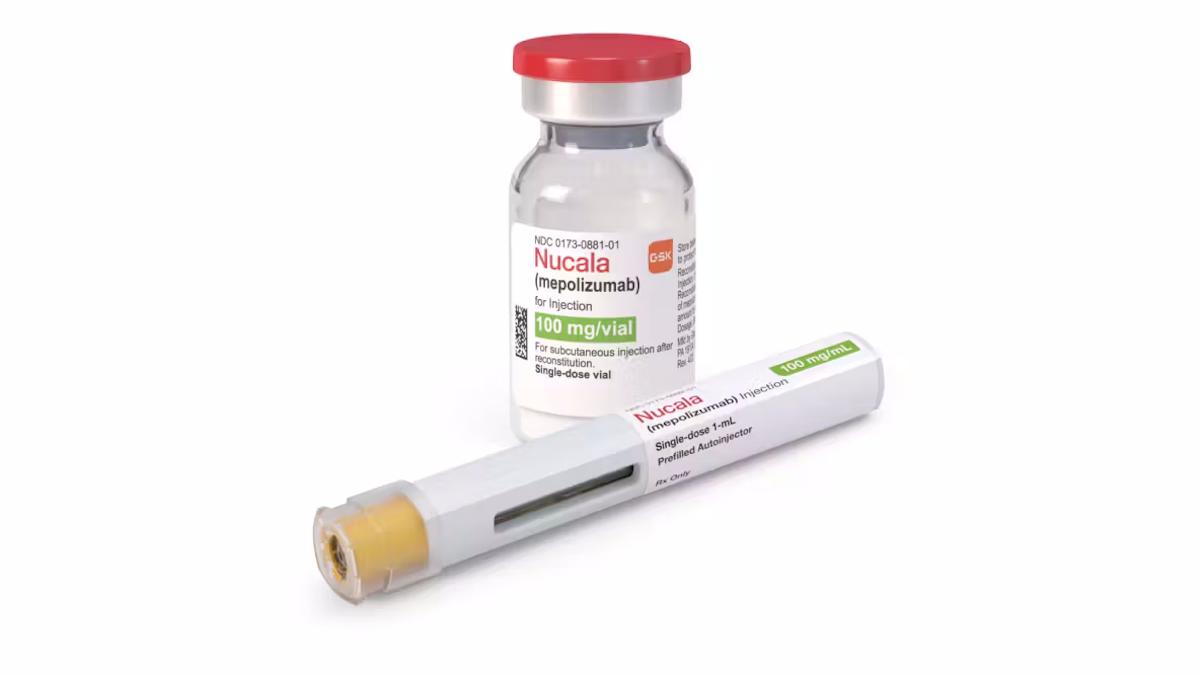GSK sets up Nucala and Dupixent showdown in COPD

New study results with GSK's anti-IL-5 antibody Nucala in chronic obstructive pulmonary disease (COPD) have been published, just ahead of an FDA decision on the new indication scheduled for 7th May.
The data from the MATINEE trial – published in the New England Journal of Medicine – reveals a 21% reduction compared to placebo in the annualised rate of moderate or severe exacerbations in a wide COPD population over 104 weeks of follow-up.
That comes in a little lower than the 30% and 34% reductions seen in two pivotal trials of Sanofi and Regeneron's IL-4 and IL-13 inhibitor Dupixent (dupilumab), which had its indications extended to include COPD last year, ending a 10-year drought in new COPD therapies and making it the first biologic therapy for the progressive respiratory disease.
GSK said, however, that MATINEE also revealed a 35% reduction in the annualised rate of exacerbations leading to an emergency department visit or hospitalisation with Nucala (mepolizumab). The result makes the antibody the only biologic showing that benefit in a phase 3 trial, albeit with a "nominally significant" difference to control.
In a statement, GSK pointed out that one in 10 patients who are hospitalised for COPD will die during the stay, rising to one in four over the next year, while half will lose their lives within five years. In the study, Nucala was added to inhaled maintenance therapy for COPD.
The antibody also showed a 31% reduction in the annualised rate of moderate/severe exacerbations versus placebo in a post-hoc analysis of patients with clinician-assessed chronic bronchitis only.
"Every physician will know the feeling of seeing a patient hospitalised due to an exacerbation that could have possibly been prevented," said MATINEE lead author Frank Sciurba, of the University of Pittsburgh.
"The MATINEE trial uncovers new possibilities in the treatment landscape for COPD patients with type 2 inflammation, as we strive to target drivers of disease and improve the lives of patients suffering with COPD."
GSK has highlighted approval of Nucala in COPD as one of its top 2025 priorities, adding to its established medicines for the disease, including Trelegy (fluticasone furoate, umeclidinium, and vilanterol), which was approved in 2018.
On GSK's first-quarter results call, chief commercial officer Luke Miels said he believes Nucala will be "very competitive" in COPD, in part because MATINEE included a wide spectrum of patients – with emphysema, combined emphysema and chronic bronchitis, and chronic bronchitis – making it an appealing option for physicians as "it can be difficult to stratify these patients at times."
He added that "about 83% of pulmonologists, when we show them the profile of the product, are very motivated to use Nucala in COPD."
Nucala is already approved for several indications, including eosinophilic asthma, and brought in £1.78 billion (around $2.4 billion) in sales last year. GSK has suggested that approval in COPD could drive sales above the £3 billion mark.
The company first tried to secure approval for Nucala in COPD several years ago, but the FDA was unmoved by mixed results in two other trials – METREX and METREO – and turned the application down in 2018.
COPD is the third leading cause of death worldwide, affecting more than 300 million people globally. Up to 40% of patients exhibit type 2 inflammation characterised by a raised blood eosinophil count, which would make them suitable for treatment with Nucala.












